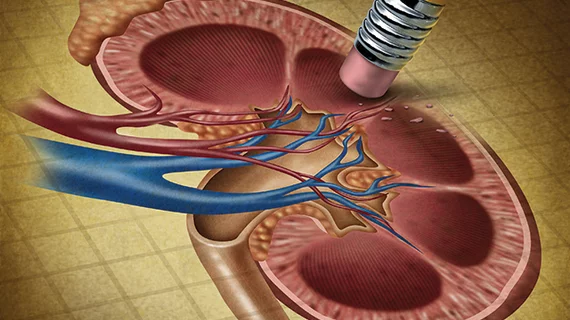The development of acute kidney injury (AKI) is commonly linked to the use of contrast media during imaging, but a recent JACR study found these incidents have likely been overestimated.
In fact, four researchers found there is actually a low, 0.85 percent risk of developing an AKI after a procedure with contrast media. However, they did find physicians should consider a patient's history as a risk factor for AKI following the use of a contrast.
“Because of the use of inconsistent definitions of AKI and varied patient populations, the incidence of post-contrast (PC)-AKI has ranged from less than 1 percent to 30 percent,” wrote corresponding author Trudy Millard Krause, DrPH, MBA, an associate professor at UTHealth School of Public Health in Houston, and colleagues. “However, as a result of the inherent variability in serum creatinine measurements, more recent studies suggest the actual incidence of PC-AKI is much less than previously reported.”
To test this argument, the team analyzed 2,737,000 comprehensive medical and pharmacy claims associated with contrast media procedures from Jan. 1, 2014, through Nov. 30, 2014.
The overall incidence of AKI after a contrast media procedure was 0.85 percent—aligning with prior studies citing overestimation. Furthermore, kidney incidents happened in 26 percent of cases that had two or more contrast procedures within 30 days, compared to 9 percent of non-AKI cases.
Krause et al. also confirmed what prior studies had in linking CKD, diabetes and hypertension to higher rates of PC-AKI.
Additionally, “more startling” according to authors, those with a prior history of AKI within 180 days had an incidence rate of 15.5 percent for developing PC-AKI within 30 days after a contrast IV—something that had not been reported previously.
“The finding should impact clinical practice and should be particularly considered in patient histories before contrast media, with a positive finding of a prior AKI being noted as adding to patient risk,” Krause et al. wrote. “Additionally, the findings from this study and the potential development of a subsequent risk assessment model might support the movement for shared health information data through health information exchanges, smart cards, or shared electronic health records.”

